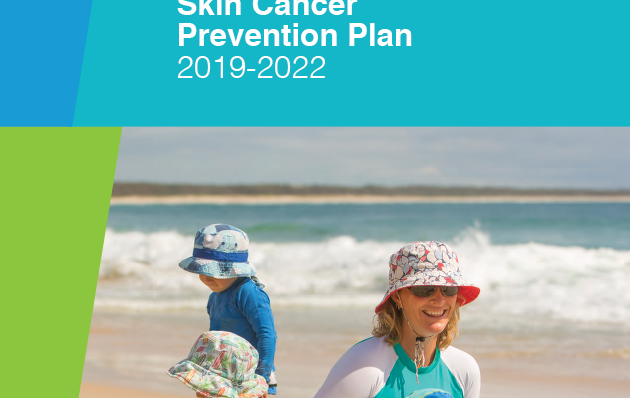
Irish Skin Cancer Prevention Plan

15 Jul 19 |
Ireland has recently launched a new Skin Cancer Prevention Plan which aims to tackle the most common type of cancer in Ireland – with 11,000 new cases per year (1). Ultraviolet (UV) radiation is the main risk factor for skin cancers and exposure causing sunburn is the most damaging.
By adopting skin protective behaviours the majority of skin cancers could be prevented. Most people living in Ireland have fair skin so are particularly vulnerable to UV damage and, as a result, are at a higher risk of skin cancer (2). UV exposure during the first 10–15 years of life makes a disproportionately large contribution to lifetime risk of skin cancer (3). Severe sunburn during childhood (3 or more instances before the age of 20) is associated with a 2-4 times higher risk of developing melanoma in later life (4). To minimise this risk, skin protection during childhood is extremely important.
The aim of this plan, through cross-sectoral collaboration, is to develop and implement evidence-based strategies which will increase awareness and the adoption of skin cancer prevention behaviours.
The Irish Skin Cancer Prevention Plan has 7 key action areas including: 1) Establish oversight for implementation of skin cancer prevention plan; 2) Increase national awareness of skin cancer prevention and improve adoption of skin cancer preventative behaviours; 3) Children and Young People; 4) Outdoor Workers; 5) Outdoor Leisure; 6) Sunbeds and other artificial UV sources; 7) Monitoring, research and
evaluation.
Some Key Actions to highlight from the plan include:
• Establish a cross-sectoral advisory group to guide and implement the plan.
• Integrate skin cancer prevention education into existing educational and training avenues.
• Develop skin protection resources for use by school, Early Learning and Care (ELC) and School-Age Children (SAC) settings AND ensure the provision of shade is prioritised in the design guidelines for ELC settings.
• Incorporate skin cancer prevention messaging and behaviours into healthy workplaces initiatives.
• Promote evidence informed messages for those who participate in, or spectate at, outdoor sport, physical activity or leisure activities through the governing bodies, local sports partnerships and relevant sports.
• Monitor and review the implementation and enforcement by the HSE Environmental Health Service of the Public Health Sunbeds Legislation AND examine the feasibility of eliminating sunbed use altogether.
• Monitor changes in skin cancer prevention awareness and behaviours.
Could a similar plan be implemented here in Scotland to help tackle increasing skin cancer rates?